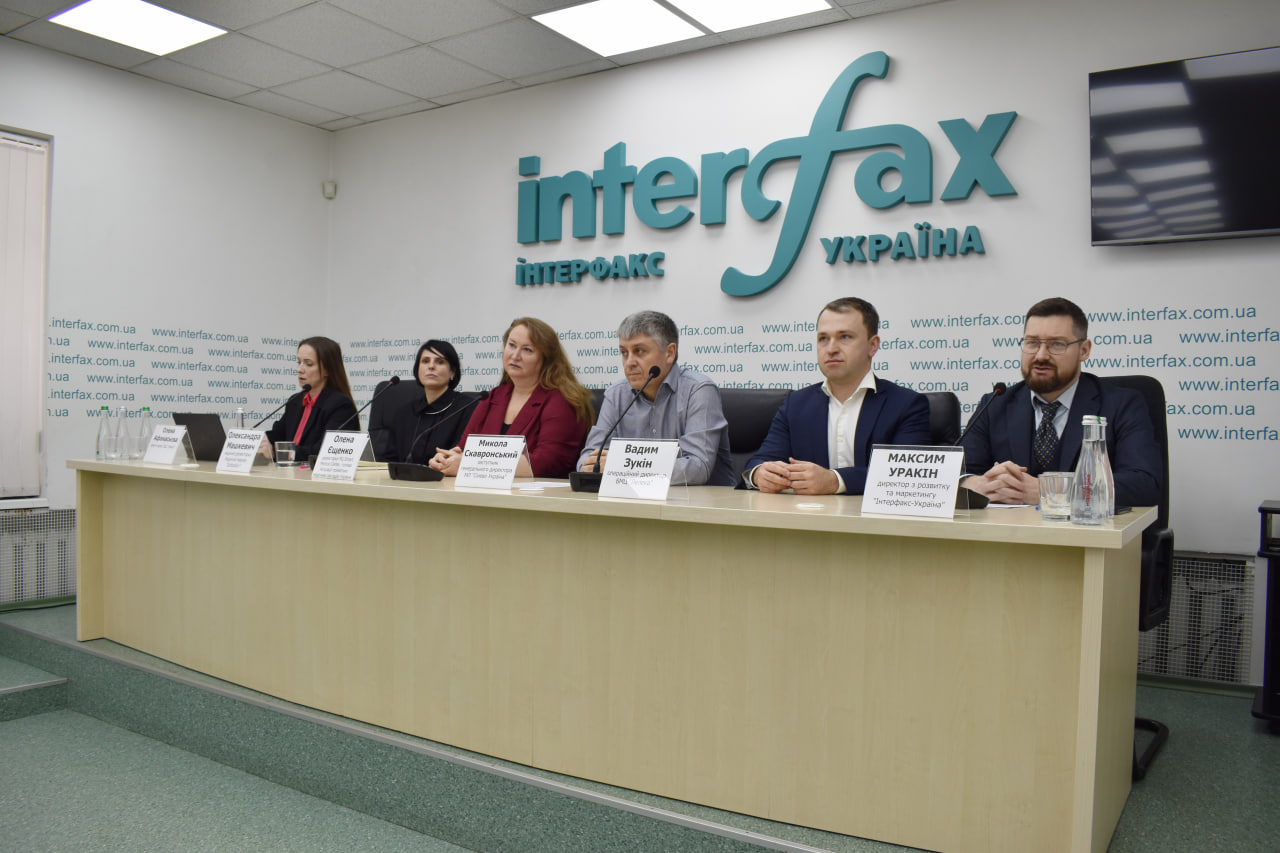
Private healthcare facilities are ready to work under the Medical Guarantee Program (MGP) and propose to revise approaches to the formation of certain packages for the MGP, which will reduce the cost of medical services and optimize budget expenditures.
This was stated by members of the Association of Private Medical Institutions (APMI) at a press conference at Interfax-Ukraine on Thursday.
Mykola Skavronsky, deputy director general of the Cinevo medical laboratory, noted that the laboratory has not stopped working since the beginning of the war, despite the fact that in 2022 Cinevo lost more than 30 branches in different regions.
“It’s quite a shame to see that recovery programs exist only for state or municipal medicine. This completely ignores the fact that private medicine also suffered from the war. But, unlike the state and municipal ones, all private providers are recovering and continue to work with their own or credit funds, not with budget funds and without assistance,” he said.

Commenting on the first experience of Cinevo’s cooperation with the NHSU in 2024, Skavronsky noted that the laboratory’s entry into the PMG “became a kind of spotlight that highlighted the situation with the laboratory industry in Ukraine as a whole.”
“I can say that the state does not know and does not understand the real need of doctors and patients for laboratory diagnostics. Now it is believed that laboratory diagnostics are needed as much as they are ordered, not as much as they are needed. Cinevo’s cooperation with the NHSU has revealed the fact that there is simply a huge unrealized demand for laboratory diagnostics in Ukraine, in March last year alone, we performed almost 730 thousand tests for 72 thousand people, and we saw that of these people who came to us for PMG, two-thirds were new people,” he said.
Skavronsky noted that at basic prices, Cinevo performed tests for about UAH 528 million, at prices, the cost of tests was about UAH 200 million, while the NHSU paid UAH 44 million for them.
“We asked the NHSU to create a laboratory package that would be transparent and clear, where it would be clear what tests and, most importantly, which doctors can prescribe them and in what quantity. Because it turned out that there were no restrictions at all, doctors prescribed tests that should not have been prescribed. It is not the laboratory that should decide what to do and what not to do, there should be a system that simply does not allow prescribing something wrong,” he said.
According to Skavronsky, one of the most popular tests funded by the budget in 2024 was vitamin D tests, of which the laboratory performed about 100 thousand.
“I don’t think Ukraine is such a rich country to cover vitamin D tests in such volumes at the expense of taxpayers. But doctors prescribe them. Why doctors prescribe them is a bigger question for doctors and pharmaceutical companies,” he emphasized.
Skavronsky also emphasized that the implementation of the proposals developed by the laboratory allowed “not only not to increase the tariff, but even to reduce it.”
“As a private laboratory, we would be ready to work with tariffs that are 15% lower, but subject to clear criteria. In recent years, we have heard that money follows the patient, but over the past year, especially in the first quarter, we have seen that money does not follow the patient,” he said.
For his part, Vadym Zukin, Chief Operating Officer of the Leleka Multidisciplinary Medical Center, reminded that Leleka is the only medical center in Ukraine that has international JCI accreditation, and the clinic received its latest confirmation at the end of 2024.
“Literally two months before the full-scale invasion began, the Minister of Health and his deputy came to us and we discussed how these standards could be implemented for other market players. But now it seems that the state is sailing its own ship, and we are trying to catch up with the Ministry of Health and convince it of something,” he explained the situation.
Zukin emphasized that “the state should realize that it is more profitable for it to become a purchaser of medical services rather than a provider and not to invest in fixed assets, since private companies already have these funds.”
He also suggested that the NHSU should enter into longer-term contracts for participation in the PMG.
“Currently, certain PMG packages will have three-year contracts, which is better than one year, but it means nothing, because in Europe and the US they think in terms of seven years, 10 years, 15 years,” he said.
Zukin believes that “now the reform has started to move a little bit in the opposite direction from the notion that money follows patients, and I would like to bring it back in the right direction.”
For her part, Oleksandra Mashkevych, medical director of the Dobrobut medical network, noted that the network is a major taxpayer, employing 3,000 people, including 1,300 doctors. At the same time, 131 employees have been mobilized from Dobrobut and the clinic continues to pay their salaries.
“We are recognized by the Ministry of Health as critical infrastructure. In 2024, we invested almost UAH 0.5 billion in our development, most of which was spent on our energy efficiency. I would like to note that investments in energy efficiency in state and municipal institutions are not made at their own expense, but at the expense of the state or donors or sponsors. We do it on our own,” she said.
At the same time, Mashkevych emphasized that Dobrobut’s cooperation with the NHSU is “quite interesting.” In particular, the clinic has been contracted for a package of assisted reproductive technologies, under which 300 patients have completed treatment cycles and almost 45% of women have already confirmed pregnancy status.
“The tariff for this service was too low for us, we worked in the red, realizing that we were lending a hand to the state, in fact, we gave the state the opportunity to use our facilities to provide free medical services. We had long rounds of negotiations with the NHSU, the Ministry of Health, and the Ministry of Finance, and they heard us and increased the tariff. This tariff does not cover all our expenses, but we continue to work with it,” she said.
Commenting on the plans to work with the NHSU, Mashkevich noted that Dobrobut plans to expand its participation in the UHI-2025 and is waiting for the NHSU’s decision on contracting for new packages.
At the same time, Mashkevych called it a positive decision to allow private institutions to use the state unified portal of medical vacancies launched by the Ministry of Health.
The press conference was organized by the Interfax-Ukraine agency and the Association of Private Medical Institutions.
Afanasieva, Bereznitsky, CLINIC, MASHKEVYCH, MEDICINE, Ministry of Health, Skavronsky, URAKIN, Yeshchenko, Гавриченко, Зукін